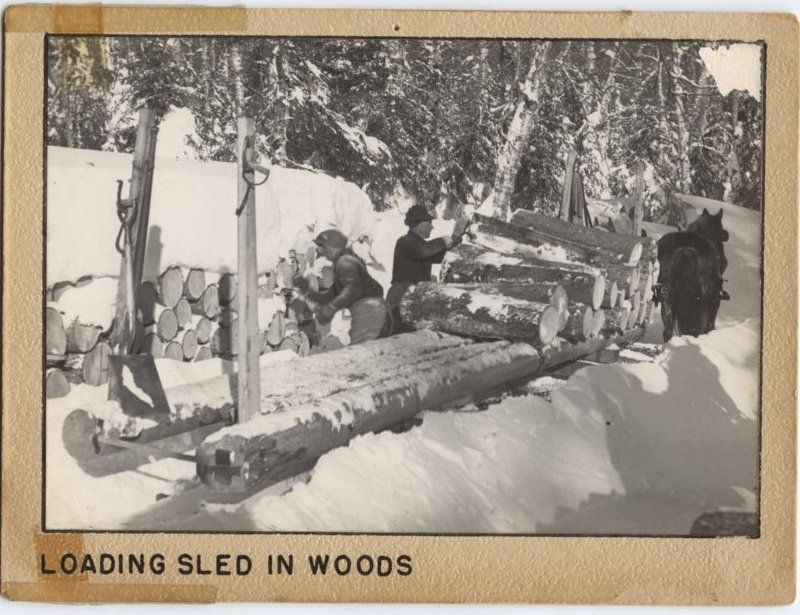A Letter to Aunty
- millinockethistsoc
- Feb 4, 2024
- 3 min read
Odds and Ends From The MUSEUM!
By Trudy Wyman, Curator, Millinocket Historical Society Museum
Letters written many years ago contain interesting insights into the life and times of long ago. The Millinocket Historical Society has a variety of letters, diaries and other correspondence that reveal the realities of life in a new town, working in the woods, military experiences and much more. Portions of a letter written March 24, 1906 by Thomas Welcome Clark, employee of GNP, to his aunt telling her of a recent trip into the woods. At the time, Clark’s home base was in town although his job took him often to various camps. The following two paragraphs from one letter show spelling, punctuation and syntax as written by Tom.
“Last week I did not write as I was sent into the woods to do a little work on the dam; the same one I worked on in the fall. After finishing what I had to do up river some twenty miles farther to the country behind Mt. Katahdin to a lumber camp. I started from Spencer’s at noon Tuesday in the midst of a severe snowstorm and rode on a tote sled some ten miles where I stopped for the night. Slept in a little log cabin about fifteen feet by twelve by six feet high to the eaves. More than twenty of us slept there that night and undoubtedly only two of us were not lousy. The other clean man was the operator who was coming out of the woods with his crew of sixty men and about twenty two horses, forty went through to Millinocket with fourteen more horses there being no accomodations for them at the camp where I stayed. I slept with my clothes on but the proprietor said he would get some spreads for me meaning clean ones and both of us had little cot beds on either side of the stove, the rest in what we call field bunks upper and lower deep enough for a man to lie in and the full width of the camp, a spread over and another under the whole crew. Spreads are blanket affairs about an inch and a half thick blanket stuff top and bottom and batting between, as long as an ordinary blanket and any width depending on how many men are supposed to sleep under them. The bunks are of poles like bean poles running lengthwise with the man sleeping, these covered with boughs and the under spread on top of those.”
(The next day, Tom walked six miles to another camp and the letter describes the sleeping arrangements there before returning to town the following day.)
“This time in a field bunk with the rest of all except one man who laid his spread on the pole floor of the camp and another man along side of me whispered he (the other man) won’t sleep here with us because he thinks he may be lousy. I rode out with him 25 miles the next morning to Millinocket: left at 6:30 Am and reached town at 3:45 PM. Called on Mrs. Bowler in the evening where I related the above while lying on her couch and when I had finished she asked if I had on the same clothes.
(Mrs. Bowler, mentioned in last paragraph was Dorothy (Bowler) Laverty’s mother. The Bowler’s lived at 4 Hill Street in Millinocket.)





Comments